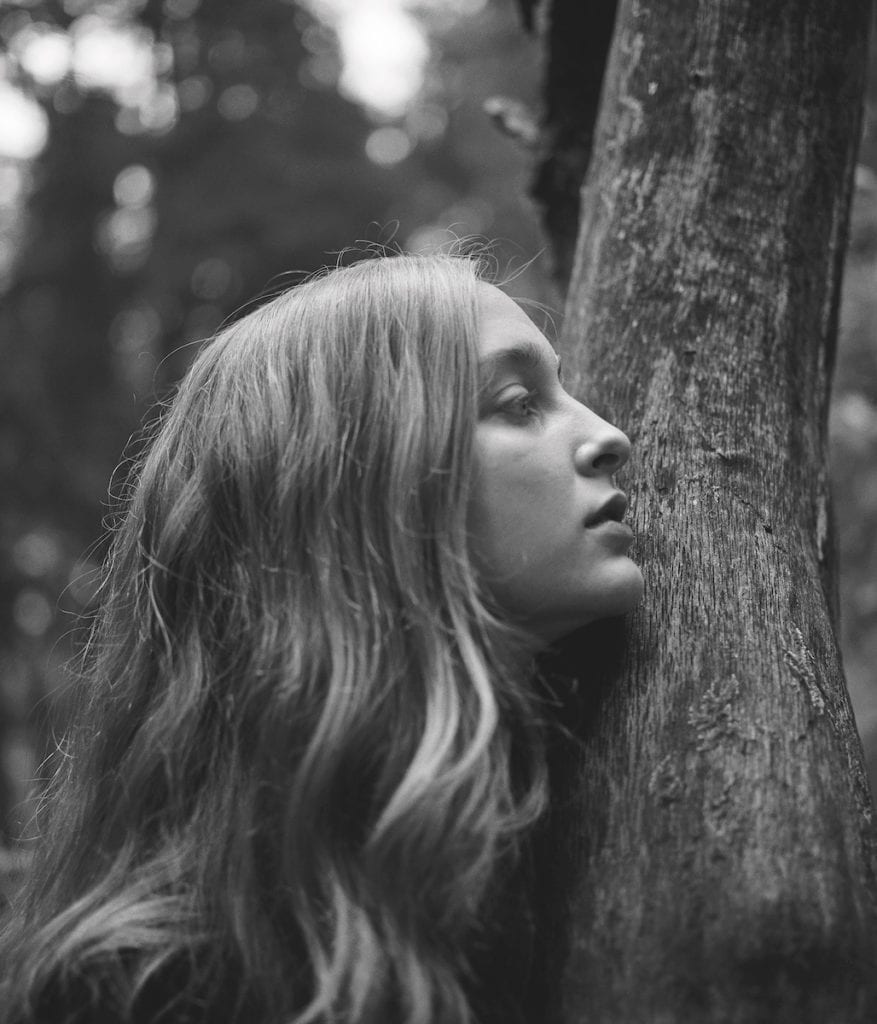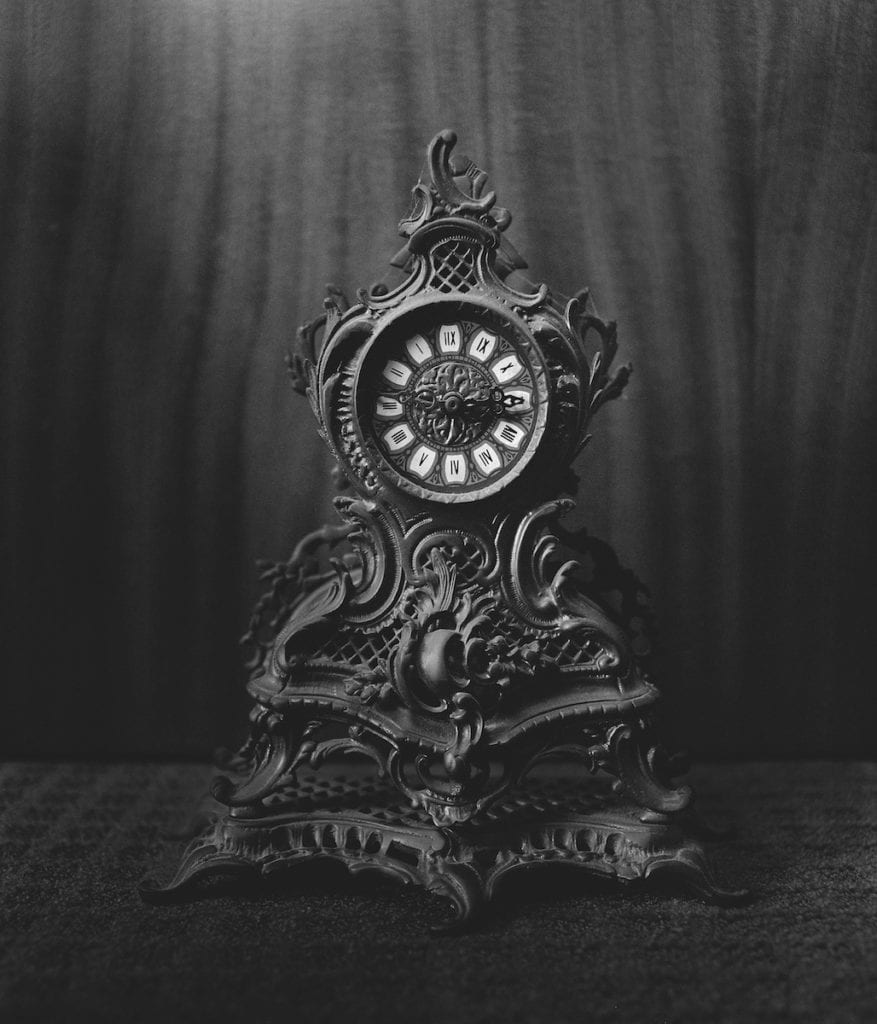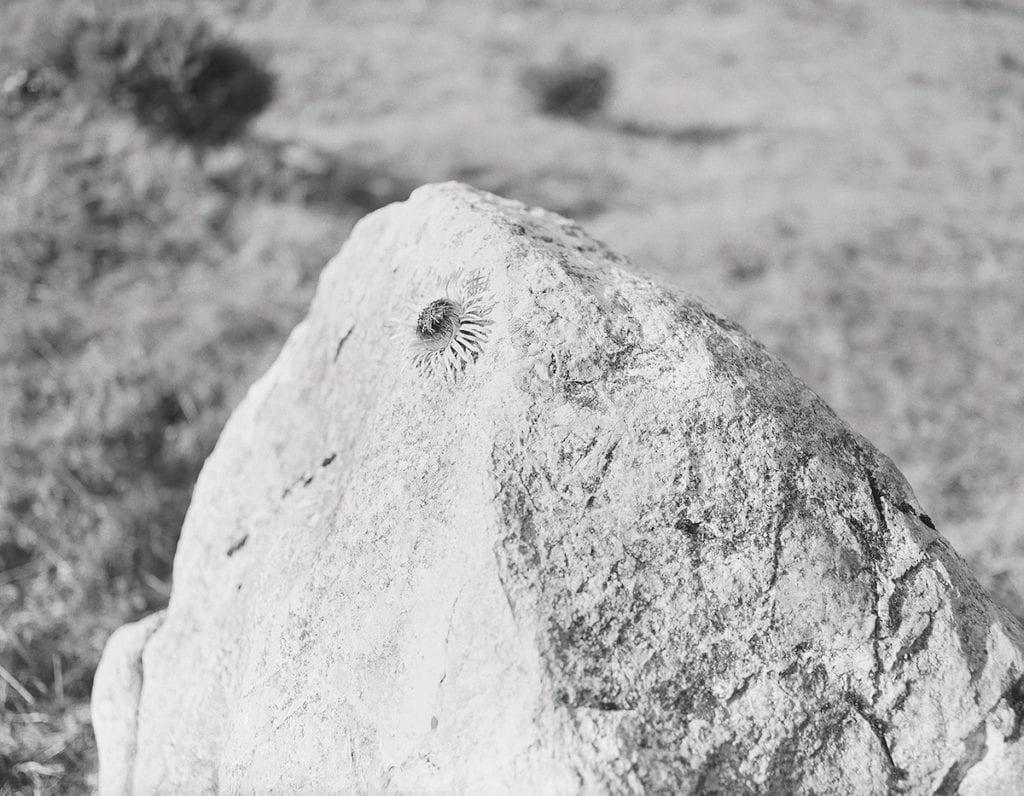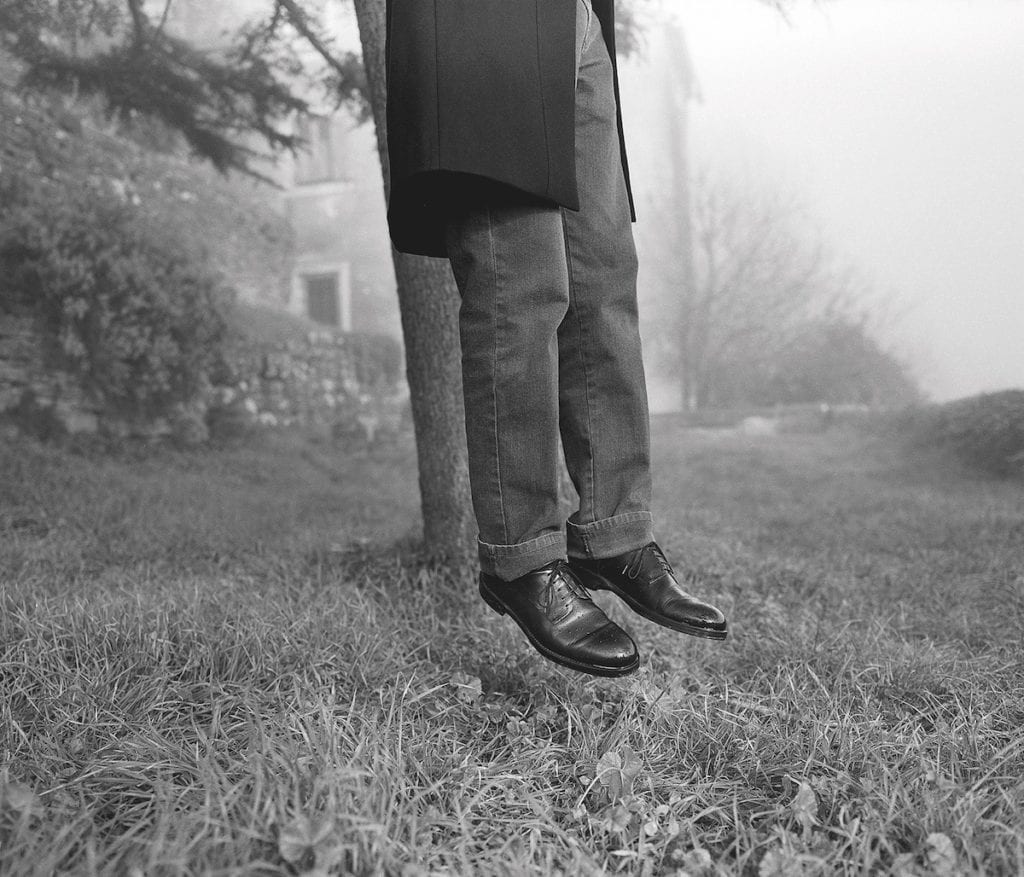Each year, British Journal of Photography presents its Ones To Watch – a group of emerging image-makers, chosen from hundreds of nominations by international experts. Throughout September, BJP-online is sharing their profiles, originally published in issue #7898 of the magazine. Ana Zibelnik is one of five Ones to Watch selected by British Journal of Photography to exhibit as part of Futures festival, which takes place throughout October.
In one of the most striking images from Ana Zibelnik’s latest project, a man’s lower body floats above the ground, as if levitating. An adjacent tree reveals a bleaker reality, however. This man has been hanged. The picture is connected to an incident in the Slovenian photographer’s childhood, when she overheard a relative call her father early in the morning, warning of a dream in which he was wearing a black funeral suit. “Later that day,” recounts Zibelnik, “my father’s uncle was found hanging in a shed.” Years later, a friend’s incongruous outfit for a day in the countryside – “perfectly polished black shoes and a nice coat” – brought an image of the incident flooding back.
We are the ones turning explores how we grapple with the subject of death, especially our own ever-approaching demise. “It takes the idea that humans are the only mortals because we are aware of our mortality,” she explains. Predominantly shot in black-and-white (“Colour,” says Zibelnik, “adds information about space, and I really wanted it to be about time”), the series spans an array of styles and formats. In one photograph, an ornate clock marks a brooding presence in a darkened room; in another, the gleaming orb of sunset is caught perfectly at the arc of two hills. We see a leather glove holding the corpse of a bumblebee, and elsewhere an elderly couple is seen from behind, one leaning into the other in an act of uncertain intimacy. Certain scenes – hands signing gestures indicating death, portraits of a young girl – reoccur, weaving in and out of the sequence. Throughout, Zibelnik contrasts the inexorable march of mechanical time with the stranger fluctuations of time as it is experienced.
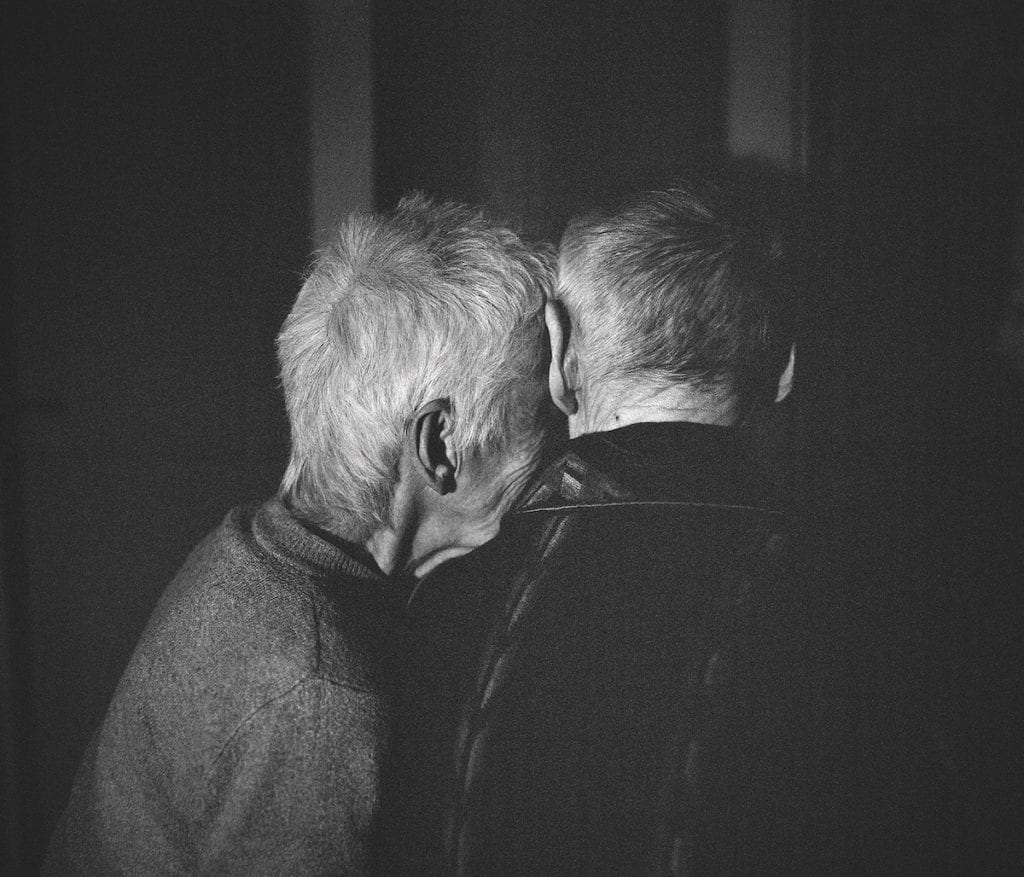
We are the ones turning demonstrates photography’s potential for exploring such abstract ideas. “There are many visual artists,” says Amsterdam-based writer and editor Erik Vroons, who nominated Zibelnik for our talent issue, “who apply psychological and philosophical notions metaphorically with the support of photography, and several of them are successful in constructing a narrative from seemingly unrelated images. But Ana Zibelnik is one of a rare species who can actually dig beyond that surface and arrive at our subconscious.” Latvian photographer and curator Evita Goze, who also nominated Zibelnik, adds: “The images she creates are beautiful, orchestrated, delicate and poetic, but at the same time they build up a very powerful and slightly disturbing narrative, where the said and unsaid are perfectly balanced.”
Zibelnik came to photography through a very different medium. Prior to her MA in Film and Photography at Leiden University, she studied for a BA in Visual Communication Design at Ljubljana’s Academy of Fine Arts. Her perspective changed after taking workshops with the French-Slovenian photographer and educator Klavdij Sluban, who included Zibelnik’s series White Devil (2017) in his If Slovenia Were project. “He kind of pulled me into a collective, and really encourages me,” says Zibelnik. “So it was through that that I started taking it seriously, and now, I would say I’m not going back to design.” Traces of Zibelnik’s background nevertheless remain. “As a designer, they always teach you to make visuals that are communicative and strong at first glance. And I think that symbolic way of thinking has really informed me.”
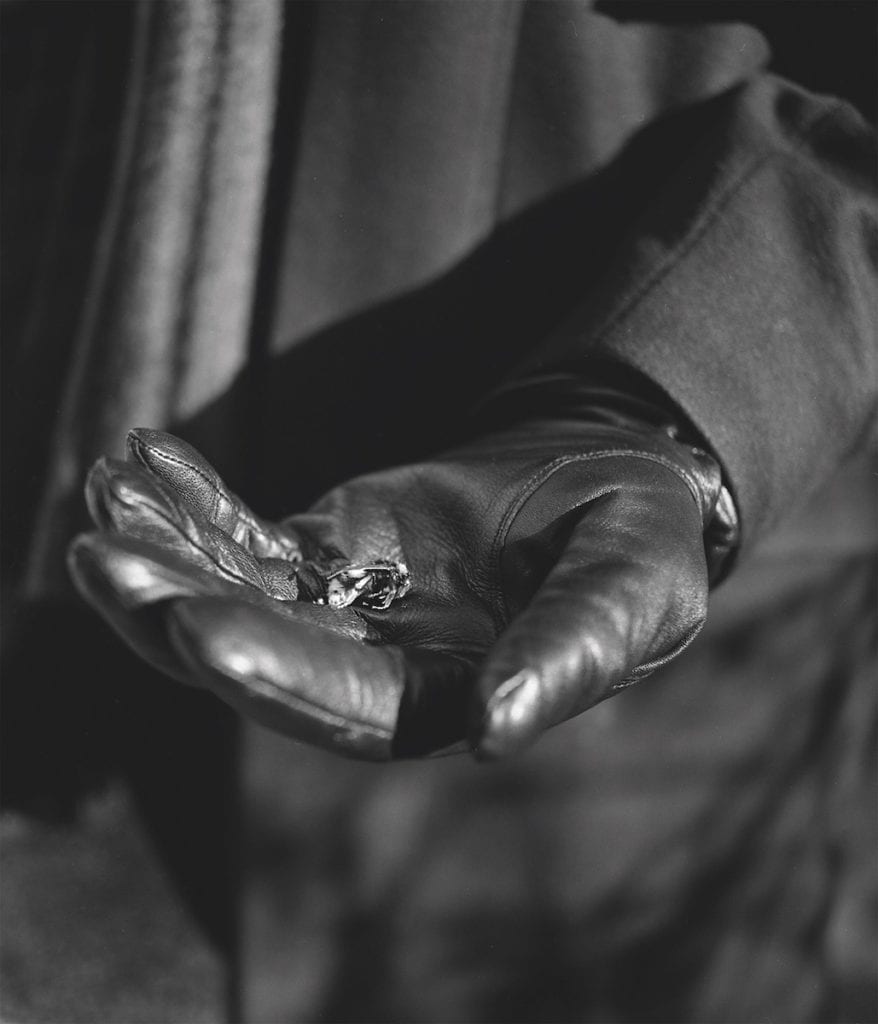
Zibelnik’s work communicates a strong sense of locality, partially that of her native country. White Devil explored the creation and perpetuation of myths around the isolated Lake Bohinj in the Slovenian Alps, while I saw the pines grow (2018) is the result of a walk along the Karst Plateau in the country’s South. And although she initially planned to shoot We are the ones turning in the Netherlands, where she now lives, having studied at Leiden University, Zibelnik eventually returned home to complete the series. “I’m not trying to create somebody else’s image except my own,” she says. “And that is based in Slovenian landscapes and culture.”
Zibelnik’s next work blossomed from her most recent. One image in We are the ones turning features a lichen perched on a boulder. “I want to take pictures of immortal plants and symbiotic organisms,” she says. “It is kind of a pointless thing to do, to take a picture of something that is potentially going to live forever with a medium that is supposed to immortalise. That’s the clash I want to expose.”
